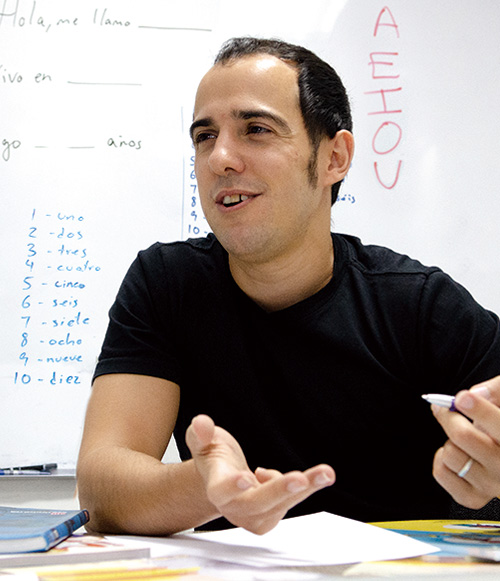For entrepreneurs building businesses remotely, the choice of where to set up a base often comes down to structural conditions more than lifestyle. Visa rules, reliable internet, healthcare access, coworking density, and cost frameworks ultimately determine whether a city enables deep work or undermines it. The following leaders share how they approached this decision model, and what they learned from both supportive and unsustainable locations.
Evaluating Affordability and Tax Relief

David Cornado, partner at the French Teachers Association of Hong Kong, found Porto workable within a €1,500 monthly target, supported by affordable rent, coworking hubs with strong WiFi, and the NHR program reducing his tax burden. He also noted healthcare access was efficient compared to higher-cost hubs. By contrast, Dubai exceeded $3,000 monthly once rent and lifestyle factors were included, despite solid infrastructure.
“In Porto, the combination of manageable costs, quick healthcare access, and tax relief made it a more stable base than pricier alternatives.”

Sandro Kratz, founder of Tutorbase, prioritizes visas and cost ceilings around $1,500, with $250 set aside for coworking and redundant internet. Medellin met these needs, offering stable connectivity and affordable healthcare. Hong Kong, however, posed high costs, intense pace, and tax stress that undercut long-term focus.
“Visa certainty and cost limits are what make a city workable for sustained productivity.”
Applying Structured Checklists

Mary Case, founder of The Happy Food Company, uses a checklist including visa length, living costs, internet, coworking, safety, healthcare, time zone, and taxes. Valencia matched her $2,100 monthly budget with fast internet, safety, healthcare, and good time zone alignment. Canggu fell short with poor connectivity, power cuts, visa hassles, and time zone mismatches.
“If a city fails on two or more criteria in my checklist, I know it isn’t the right base.”

Oleh Stupak, CEO and co-founder of Mgroup Shopify Agency, evaluates cities like a system designer: visa flexibility, monthly cost targets of $1,500–$2,500, coworking density, healthcare access, and clear tax rules. Lisbon fit well, combining affordability, community, and a straightforward D7 visa. Bali, on the other hand, posed issues with healthcare, inconsistent WiFi, and higher costs when seeking Western standards.
“A thriving coworking culture and visa stability make Lisbon a sustainable base for deep work.”
Balancing Stability Against Rising Costs

Arsen Misakyan, CEO and founder of Angel City Limo, designed his model around visas, WiFi reliability, coworking options, healthcare, tax implications, and cost ceilings under $2,500. Tbilisi worked with a one-year visa-free stay, strong WiFi, and predictable expenses around $1,800 per month. Barcelona, however, pushed costs over $3,500 with complex visa options and disruptions, making it less practical despite its appeal.
“The unglamorous but reliable locations often make better long-term homes for work.”

Eugene Leow Zhao Wei, director at Marketing Agency Singapore, places productivity first by requiring strong WiFi and coworking access. With cost targets of $1,500–$2,000, he weighs safety, healthcare, and visa stability alongside tax considerations. Lisbon delivered across these categories, while Bali, despite affordability, fell short with inconsistent internet and visa hurdles.
“Cost savings don’t define a good base—consistency and stability do.”
Taken together, these experiences reinforce that choosing a digital base is less about lifestyle appeal and more about infrastructure, stability, and sustainability. Reliable systems of visas, internet, healthcare, and workspace access consistently make the difference in whether a city supports deep work or adds friction.









